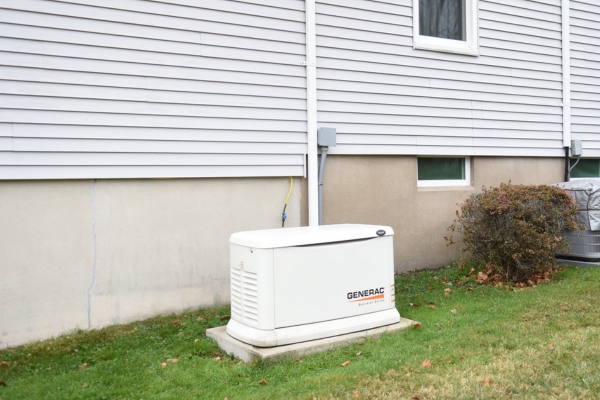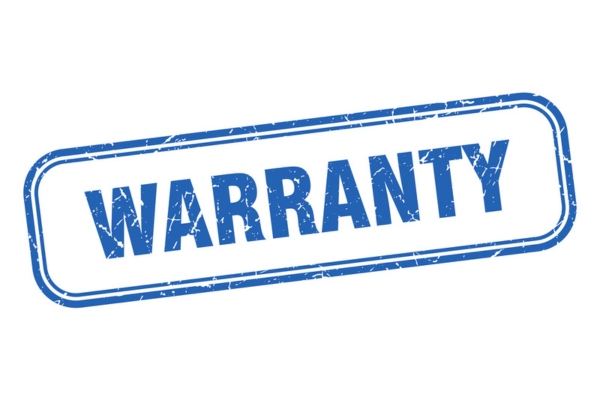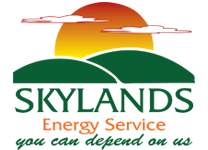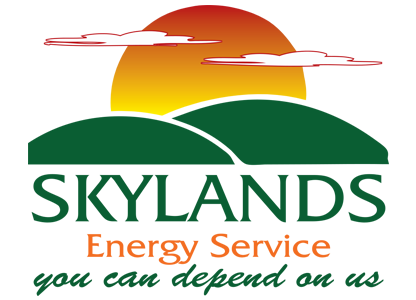
In areas frequently affected by power outages because of weather or other factors, a dependable power generator becomes essential, not merely for convenience. It provides uninterrupted power, averting the troubles and possible damages caused by unexpected power failures. Selecting the best standby generator with the appropriate features can boost its efficiency and longevity.
Skylands Energy Service stands at the forefront of supplying top-tier whole-house generators, renowned for their expertise and extensive selection. This article will outline the nine critical features to consider when selecting a power generator, ensuring you make an educated decision tailored to your requirements.
Be Prepared for Outages with a Backup Generator: Ensure your home stays powered year-round. Call Skylands Energy Service now for expert generator solutions.
Nine Key Features to Evaluate When Selecting a Power Generator
Table of Contents
- 1 Nine Key Features to Evaluate When Selecting a Power Generator
- 1.1 1. Power Output and Capacity
- 1.2 2. Fuel Type and Efficiency of Whole-House Generators
- 1.3 3. Automatic Transfer Switch (ATS) Importance
- 1.4 4. Consideration of Backup Generator Noise Levels
- 1.5 5. Selecting the Proper Size for a Whole-House Generator
- 1.6 6. Initiation Systems for Standby Generators
- 1.7 7. Duration of Operation and Fuel Storage Capacity
- 1.8 8. Safety Features in Whole-House Generators
- 1.9 9. Maintenance Accessibility and Warranty for On-Demand Generators
- 2 Conclusion
- 3 Call Skylands Energy Service for Expert Backup Generator Solutions
This section explores several critical elements to consider when selecting a whole-house generator.
1. Power Output and Capacity

Power output and capacity are vital when choosing a power generator. These metrics indicate the electricity amount a generator can produce, typically quantified in watts. Various home appliances and systems demand specific wattages; for example, a refrigerator might require 600 watts, and central air conditioning could need as much as 4000 watts.
It is crucial to choose a generator whose capacity surpasses the combined wattage demands of all appliances and systems during maximum usage to ensure efficient performance.
To calculate the needed power output for your home, tally the wattage needs of every device that must function during a power outage. When comparing generators, you’ll encounter models with capacities ranging from 5,000 to over 20,000 watts.
A smaller home with fewer appliances may suffice with a 10,000-watt model. At the same time, a larger residence with extensive systems may necessitate a minimum of 20,000 watts to guarantee a continuous power supply during disruptions.
Consult with Our Generator Specialists! Seeking advice on installing a whole-house generator? Contact Skylands Energy Service for expert guidance and in-depth insights.
2. Fuel Type and Efficiency of Whole-House Generators
Choosing the right fuel type for a generator is crucial, influencing factors from efficiency to ongoing operational costs. Popular fuel choices include gasoline, diesel, propane, and natural gas.
Each option has distinct advantages and drawbacks; for instance, diesel generators are celebrated for their durability and strong performance, whereas natural gas models are preferred for their ease of use and reduced emissions.
Fuel efficiency significantly impacts a generator’s operational cost and runtime. More efficient generators deliver more power using less fuel, proving more economical in the long run. Although gasoline generators might be more affordable upfront, they tend to incur higher operational costs and have shorter lifespans.
Propane generators, which are cleaner compared to diesel and gasoline, necessitate safe fuel storage. Each fuel type presents unique benefits and limitations, emphasizing the significance of selecting one that aligns with your requirements, fuel availability, and environmental concerns.
3. Automatic Transfer Switch (ATS) Importance
An Automatic Transfer Switch (ATS) is essential for maintaining power continuity during an outage. It automatically recognizes a power loss, activates the generator within seconds, and ensures a smooth transition from the main power supply to the generator. This feature removes the need for manual operation, offering a prompt and effective response to power interruptions.
Adding an Automatic Transfer Switch (ATS) enhances convenience and safety. It reduces the impact of outages and safeguards electronic devices from potential damage due to abrupt power changes.
Most contemporary generators have an ATS pre-installed, tailored to complement the specific model’s output and characteristics. This configuration ensures that the generator activates only as needed, boosting fuel efficiency and prolonging the unit’s lifespan.
Stay Powered with Skylands Energy Service! Looking for reliable power solutions? Contact Skylands Energy Service to discover how our whole-house generators can ensure your home remains operational without interruption.
4. Consideration of Backup Generator Noise Levels
The noise level is essential when choosing a backup generator, particularly in residential settings where excessive noise can interrupt daily activities and violate local sound regulations. Generators are measured in decibels (dB), with typical models ranging from about 60 dB (equivalent to a normal conversation) to over 100 dB (similar to a nearby motorcycle).
Understanding these decibel levels is key to selecting a generator that will cause minimal disruption. For example, models engineered for quieter operation may include sound-dampening technology and specialized enclosures that greatly lower noise levels.
Such quiet models are especially advantageous in densely populated areas or homes where noise could impact living conditions. Opting for a low-noise generator ensures a reliable power backup without the nuisance of loud operational noises.
5. Selecting the Proper Size for a Whole-House Generator

Selecting the correct size for a whole-house generator is vital for adequately balancing your power requirements. The generator’s size is typically measured in kilowatts (kW), which dictates how many appliances and systems it can simultaneously support.
For example, a modest-sized home may only need a 10 kW generator to operate crucial appliances. In comparison, a larger residence equipped with several air conditioners and a well pump might require a generator with a capacity of 20 kW or more to manage all possible loads efficiently.
Generators are available in various sizes to suit residential and commercial requirements. For instance, the typical offerings might encompass:
- 10 kW models ideal for essential emergency power.
- 20-30 kW models tailored for medium-sized homes.
- 40-50 kW units suitable for large estates or homes with substantial power needs.
Accurately sizing a generator is critical for its efficient operation and to prevent overloading the system, thus protecting the generator and the home’s appliances.
Book Your Consultation Now! Ensure continuous power in your home. Reach out to Skylands Energy Service today to discover our whole-house generator options.
6. Initiation Systems for Standby Generators
The initiation mechanism of a standby generator is crucial in its ease of use and dependability. Typical systems encompass manual start, automatic start, and remote start options. Generators with a manual start need direct interaction to activate, which may be inconvenient during adverse weather conditions or when the user is away from home.
Automatic start systems engage instantly when they detect a power outage, ensuring a smooth transition without requiring user involvement. Remote start systems enable operation from afar, offering added convenience for extensive properties or users with mobility challenges.
Selecting the appropriate start-up mechanism should reflect the user’s preferences and requirements. An automatic start is ideal for the uninterrupted operation of medical devices or for individuals frequently away from home. In contrast, manual systems might be more suitable for those on a budget with less urgent needs. Choosing the proper start-up mechanism boosts the generator’s efficiency and user satisfaction.
7. Duration of Operation and Fuel Storage Capacity

Extended run times are essential for generators during prolonged power outages. They ensure they can operate continuously without the need for regular refueling, which is especially critical in adverse weather conditions or when fuel access is limited. A generator’s run time primarily hinges on its fuel tank size; a larger tank can maintain operation for an extended period before needing a refill.
For instance, a 500-gallon propane tank might support several days of continuous use, whereas a 20-gallon gasoline tank may require refueling daily if heavily utilized. Increasing run time and fuel efficiency is possible with features like eco-mode, which optimizes power output to suit the current load, and through routine upkeep such as oil checks and air filter cleanings. These practices enhance efficiency and prolong the generator’s service life.
Secure Your Home’s Energy! Guard against power outages—contact Skylands Energy Service for the ideal whole-house generator.
8. Safety Features in Whole-House Generators
Safety mechanisms in whole-house generators are essential for preventing harm and ensuring secure operation. Important features include low-oil shutdown, which automatically halts the generator to prevent engine damage when the oil level is low. Overload protection similarly shuts down the generator if the power demand surpasses its capacity, safeguarding both the unit and connected devices. Moreover, spark arrestors play a vital role in fire prevention by capturing or extinguishing sparks from the exhaust system.
Verify that a generator complies with regulatory safety standards and local codes to ensure safety and legal compliance. Generators should hold certifications that meet criteria established by entities like Underwriters Laboratories (UL) and the Environmental Protection Agency (EPA), which vary based on the fuel type used.
For improved safety, installing carbon monoxide detectors near the generator and in residential areas is advised to monitor any dangerous emissions. Conducting regular maintenance, ensuring proper ventilation, and installing the generator away from windows and vents are additional safety measures that enhance the secure operation of backup generators, protecting the property and its inhabitants.
9. Maintenance Accessibility and Warranty for On-Demand Generators

The ease of maintenance is vital for the sustained reliability of whole-house generators. Designs featuring easily accessible components and straightforward maintenance processes enable efficient routine inspections and repairs, minimizing downtime and prolonging the generator’s service life. Regular maintenance tasks like oil changes, coolant level checks, and inspection of belts and batteries are crucial for boosting performance and dependability.
When choosing a backup generator, the warranty is a crucial factor. Opt for warranties that provide broad coverage for an extended duration and include thorough support services. A robust warranty not only guards against manufacturing defects but also reflects the manufacturer’s trust in their product’s quality. Together, diligent maintenance and strong warranty coverage guarantee the generator’s long-term operation, offering security and a significant return on your investment.
Conclusion
Choosing the ideal power generator requires careful evaluation of key characteristics like power output, fuel type, noise level, size, start-up mechanism, run time, safety, maintenance, and warranty. Fully understanding these features helps you select a generator that effectively and reliably suits your needs.
For professional guidance and to view a selection of premium generators that incorporate these vital attributes, contact Skylands Energy Service. Secure your comfort and continuity during power interruptions by opting for the best power solution for your home or business with Skylands Energy Service.
Explore Our Selection of Whole-House Generators! Find the ideal generator for your home. Reach out to Skylands Energy Service to discover our wide range of options.
Call Skylands Energy Service for Expert Backup Generator Solutions
Skylands Energy Service delivers exceptional whole-house generator services throughout Central New Jersey. Our expertly certified technicians are thoroughly trained to provide superior maintenance, repairs, and installations for standby generators.
Whether you need to repair a backup generator, install a new one, or ensure your existing unit is performing optimally, our skilled team is prepared to offer precise services tailored to your specific needs. Choosing Skylands Energy Service means you benefit from dependable service, interact with friendly and knowledgeable staff, and enjoy transparent pricing.
We prioritize your satisfaction, supporting our services with a robust guarantee. Contact us today to schedule your service appointment and receive a free in-home consultation. Call now!
With Skylands Energy Service, you’re in the hands of industry professionals dedicated to answering your questions and providing the peace of mind you deserve.
Contact us now at (908) 707-1776 to find out more! Click here to view our service area.

Related Articles:

